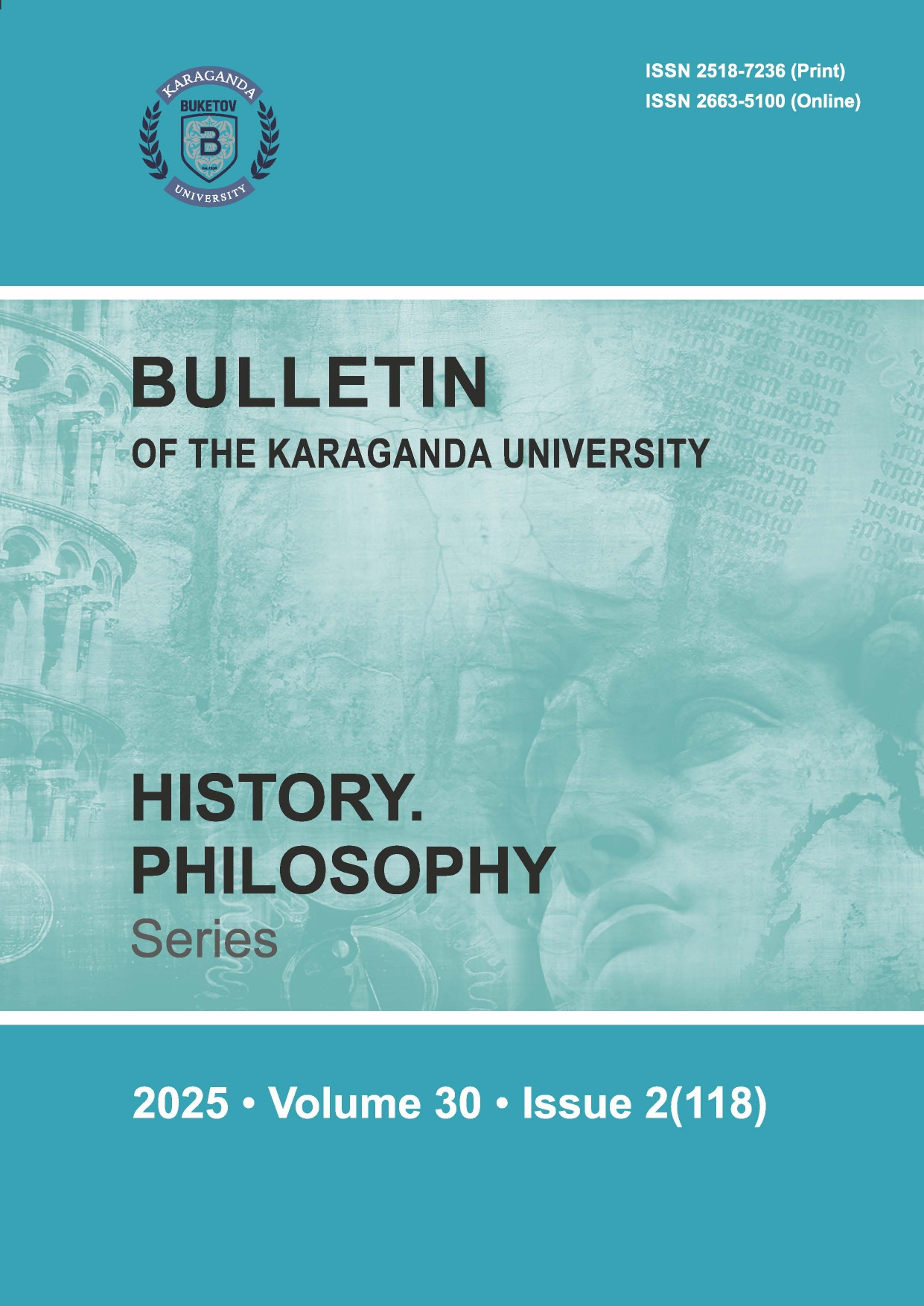Religious tolerance: theoretical and empirical levels
DOI:
https://doi.org/10.31489/2025hph2/231-240Keywords:
religious tolerance, morality, value, religious pluralism, communication, interfaith interactionAbstract
The article examines the problem of religious tolerance in two aspects: on the one hand, as a theoreticalanalysis of the essence of this phenomenon, and, on the other hand, as a view to the dichotomy of toleranceand intolerance empirically from the point of view of the real religious people’s experience. Initially, theconcept of tolerance is analyzed through the works of P. Nicholson, A. Margalit, and other authors,comparing the vectors of development according to Plato (ascent) and Aristotle (descent), and substantiatingthe factors that influence the formation of internal religious (metaphysical) tolerance in individuals andgroups. In the empirical section, the personal experiences of religious individuals regarding tolerance andintolerance are examined as confirmation of the effectiveness of three important factors affecting religioustolerance in society (development vector, perceptual shift in the development vector, intensity of interactionamong subjects). In conclusion, the article summarizes the discussion and suggests exploring the prospects ofactualizing interfaith interaction methods in the religious sphere, such as communication, dialogue, service,management, as well as deepening the understanding of the concept of salvation based on perceptual shifts.




